Rosemary Oil for Hair Growth: Does It Really Work?
Rosemary oil for hair is everywhere on HairTok right now. Beauty creators are swearing by it, massaging it into their scalps to boost hair growth, thickness, and shine—sometimes in just weeks.
At first, I thought it was another overhyped DIY trend. But after scrolling through enough jaw-dropping before-and-afters, I caved. I grabbed a bottle of rosemary essential oil, added it to my Sunday self-care ritual, and committed to a 30-day trial.
Spoiler: The results seriously surprised me.
But before I get into what happened, here’s a quick look at what rosemary oil actually is—and why so many are calling it liquid gold for your scalp.
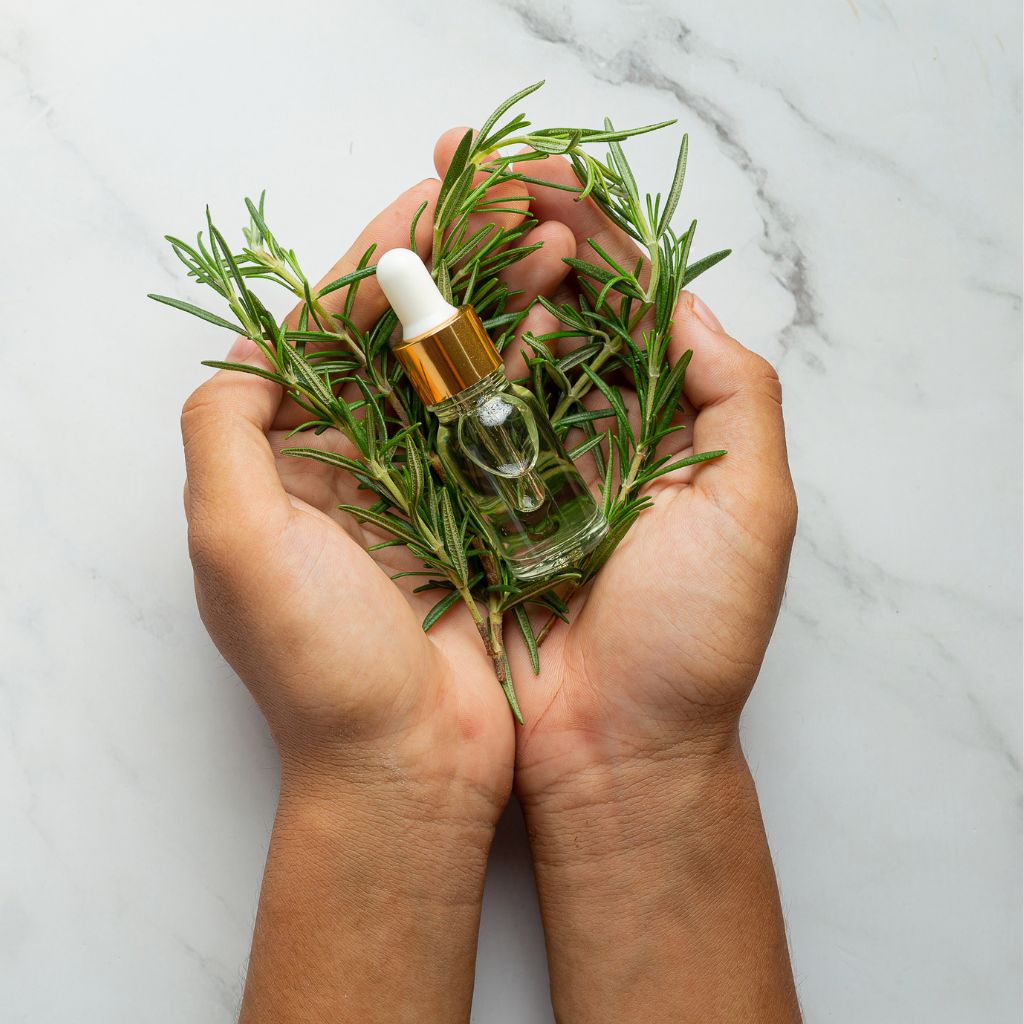
What Is Rosemary Oil and Why Is It Trending?
Rosemary oil is an essential oil derived from the rosemary herb—yes, the same one you use for roasted potatoes. But in the beauty world, it’s become a game-changer for scalp health and hair growth.
Why is it trending?
-
It’s natural, affordable, and easy to DIY.
-
Users report less shedding, fewer bald patches, and faster growth.
-
Some even compare it to Minoxidil—a popular (but chemical-heavy) hair loss treatment.
And the best part? It smells like a botanical spa treatment.
Does Rosemary Oil Really Help with Hair Growth?
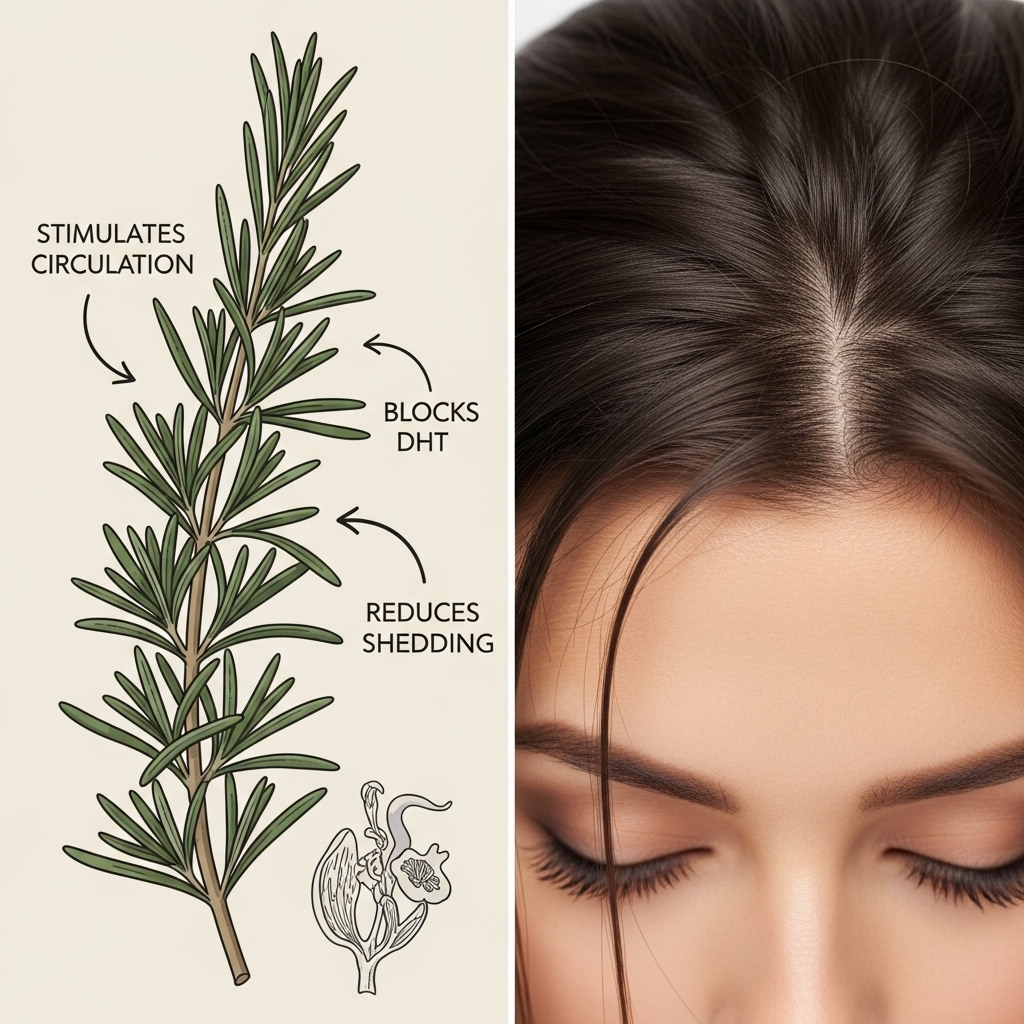
There’s actual science behind the hype.
A 2015 study compared rosemary oil to minoxidil (the active ingredient in Rogaine) and found that after 6 months, both groups showed similar hair growth—but the rosemary oil group experienced less scalp irritation.
Here’s how rosemary oil works:
-
Stimulates blood circulation to the scalp, encouraging new hair growth.
-
Reduces inflammation, making it great for itchy or flaky scalps.
-
Blocks DHT, a hormone that contributes to hair thinning.
In short: Yes, it has legit potential, especially for women struggling with postpartum hair loss, alopecia, or thinning edges.
How to Use Rosemary Oil for Hair Growth
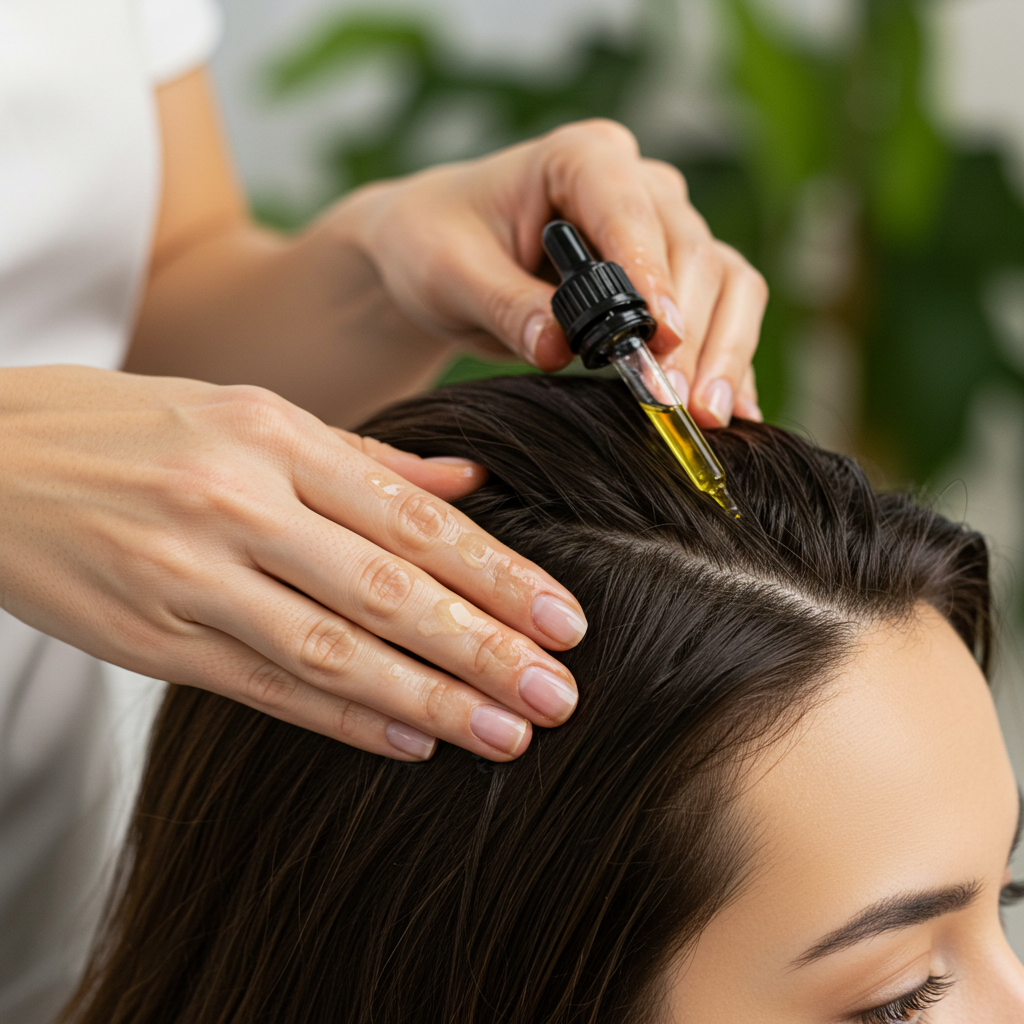
You can use rosemary oil in a few different ways depending on your routine:
1. Scalp Massage with Carrier Oil (Best for Beginners)
-
Mix 3–5 drops of rosemary oil with a carrier oil (like jojoba, coconut, or castor oil).
-
Massage into your scalp for 5–10 minutes.
-
Leave on for at least 30 minutes—or overnight for deep treatment.
-
Wash out with shampoo.
2. Add to Shampoo or Conditioner
-
Add a few drops directly to your bottle.
-
Shake well and use as usual.
-
This method is convenient but less potent than direct scalp application.
3. DIY Rosemary Hair Spray
-
Brew rosemary tea, cool it, and add 3–4 drops of rosemary oil.
-
Pour into a spray bottle.
-
Spritz your scalp and roots daily.
What I Noticed After 30 Days of Using Rosemary Oil
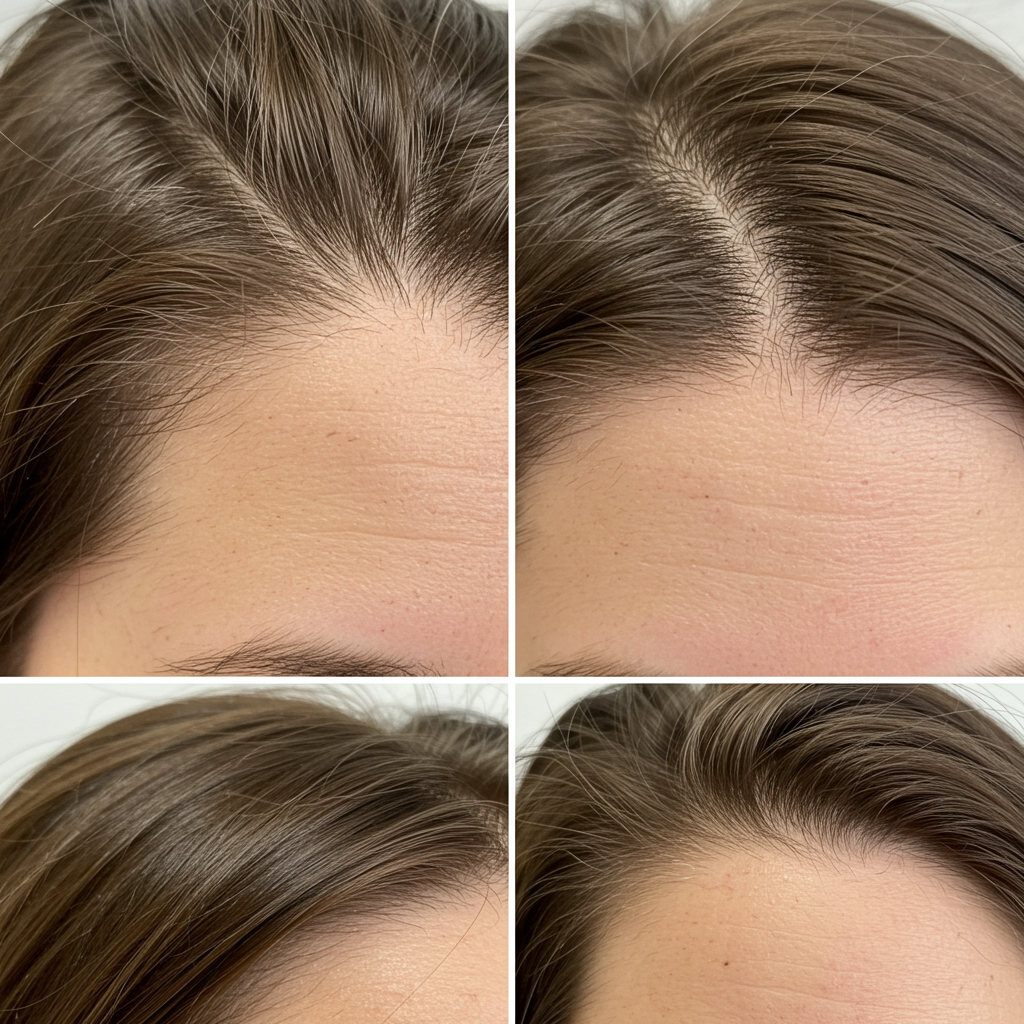
I started with the scalp massage method three times a week. I used cold-pressed jojoba oil as my base and massaged it in with my fingertips (sometimes with a scalp brush).
Week 1:
Scalp felt tingly and refreshed—almost like mint. No irritation, just a gentle stimulating feeling.
Week 2:
I noticed less hair shedding in the shower. My hair also felt shinier and less frizzy.
Week 3:
Tiny new baby hairs started sprouting around my hairline. The “bald spot” near my part looked less noticeable.
Week 4:
Fuller, softer, and stronger strands overall. I was shook. It didn’t grow inches overnight, but my hair definitely looked healthier, thicker, and more alive.
Tips to Maximize Results with Rosemary Oil
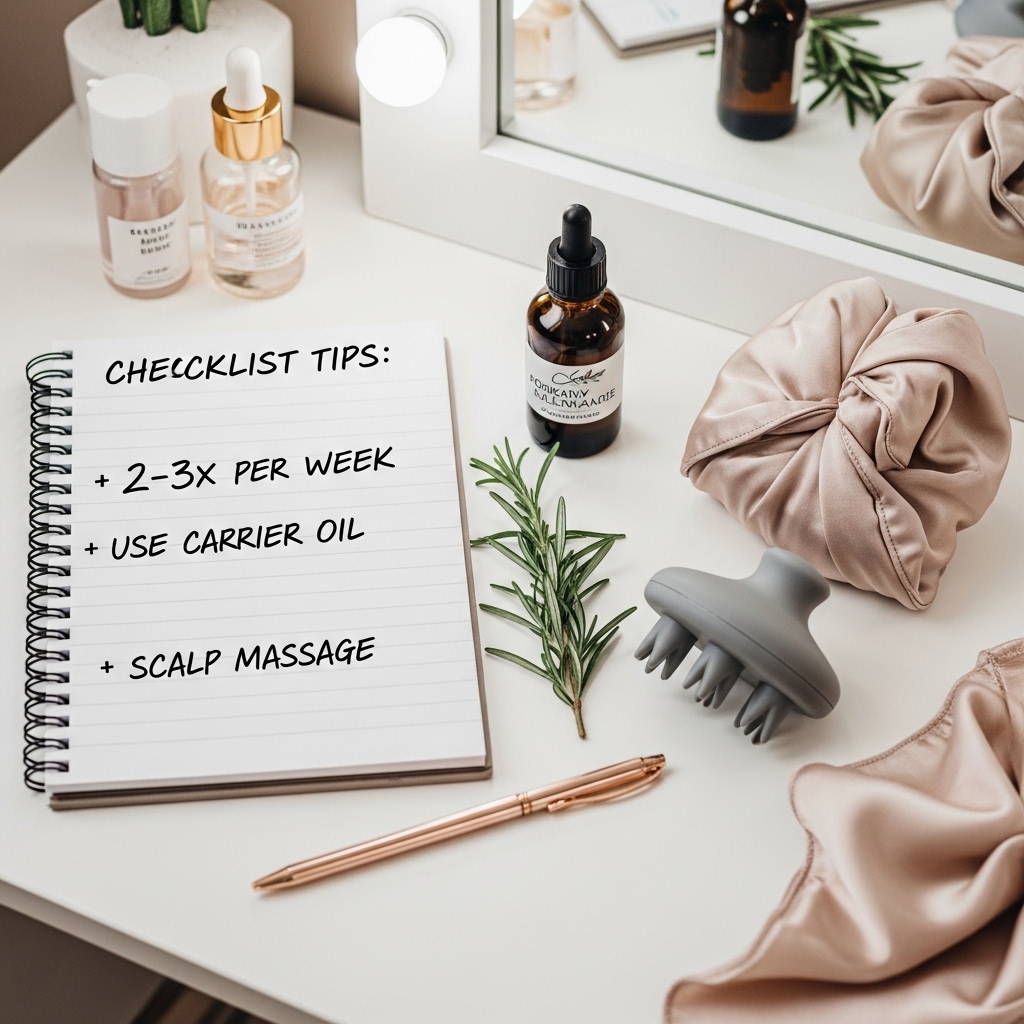
-
Be consistent: You won’t see results overnight. Use it 2–3x per week for at least a month.
-
Do a patch test: Essential oils are powerful. Always mix with a carrier oil and test on a small area of skin.
-
Focus on the scalp: That’s where the magic happens. Don’t just oil the strands—massage it in where hair grows.
-
Stay patient: Hair growth is slow. Think months, not days. But healthier hair can show up within weeks.
Side Effects: Is It Safe for All Hair Types?

Rosemary oil is generally safe for all hair types—curly, coily, straight, color-treated, relaxed, or natural. But here are a few things to note:
-
Avoid using undiluted rosemary oil directly on the scalp—it’s too strong.
-
If you have a sensitive scalp or eczema, start with a light dilution (1–2 drops per tablespoon).
-
Skip if you’re allergic to rosemary (do a skin patch test first!).
Is Rosemary Oil Worth Adding to Your Hair Routine?
If you’re looking for a natural way to boost hair health, stimulate growth, or rescue your edges, rosemary oil is absolutely worth trying. It’s affordable, easy to use, and—based on both science and personal experience—it delivers visible results with consistency.
Plus, the ritual of massaging your scalp feels like self-care magic.
So yes, the hype is real. And now, I’m officially that girl mixing essential oils into my shampoo.
Explore more hairstyles posts here



